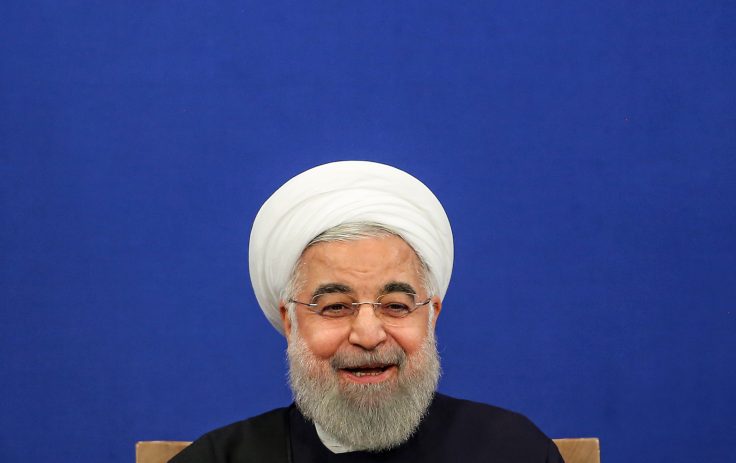The Trump administration is renewing a set of sanctions waivers that permit Iran to engage in nuclear work, a move likely to irritate congressional hawks who have pressured the administration to nix the waivers for months.
The sanctions waivers allow Iran to engage in limited nuclear work, including at its Arak plant, a heavy-water reactor that critics say could provide Tehran with a plutonium-based pathway to a nuclear weapon. Despite pressure from GOP hardliners in Congress, the State Department has repeatedly renewed the waivers, arguing they are necessary to keep tabs on Iran's nuclear work.
The nuclear waivers will be extended for 60 days, after which the Trump administration will reevaluate whether to end the waivers once and for all, a senior State Department official confirmed to the Washington Free Beacon.
The waivers have emerged as a point of controversy between Republican lawmakers and the Trump administration, with several members of Congress going public to accuse the administration of undermining its own so-called maximum pressure campaign against Tehran. The waivers have also created friction inside the administration. While the State Department has leaned towards ending the waivers, the Treasury Department has lobbied in favor of them, sources told the Free Beacon.
One U.S. official involved in Iran diplomacy told the Free Beacon that Treasury Secretary Steve Mnuchin has pushed for the nuclear waivers to be renewed.
"Every few months Steve Mnuchin makes up a new reason to preserve the Iran deal and undermine the president's maximum pressure campaign on Iran," said the source, speaking only on background about ongoing discussions. "Last time Treasury made up something about European diplomacy. This time they used the coronavirus as an excuse. Next time they'll say the situation heading into the summer is very delicate. The excuses change but the policy is always the same."
Secretary of State Mike Pompeo told the Free Beacon in late February he consistently reviews the nuclear waivers to ensure they are needed to keep tabs on Iran's nuclear work. This review process has become all the more necessary as Iran limits access to its facilities. International nuclear inspectors with the International Atomic Energy Agency have publicly accused Tehran of blocking entry to key sites.
"We go back and make our best assessment of whether allowing those waivers to continue reduces risk to the United States or increases risk," Pompeo said at the time.
Parts of the waivers have prevented Iran's nuclear program from pushing forward, Pompeo said.
"They've given us access and information that's been to our benefit. The analysis that the president has come to when he made the decision to extend those waivers is that it was in our interest."
Pompeo's approach has not satisfied Iran hawks in Congress, including those who often support the secretary of state's forward-leaning stance on sanctions.
Rep. Liz Cheney (R., Wyo.), for instance, introduced legislation late last year that would force the administration to end the waivers. That bill was spearheaded by Sen. Ted Cruz (R., Texas) in the Senate.
"These 'civil nuclear' waivers legitimize Iran's illicit nuclear infrastructure and help sustain President Obama's disastrous nuclear deal," Cheney said when she introduced the legislation. "Congress is determined to support President Donald Trump's rightful exit from that deal and his successful maximum pressure campaign against Tehran."
Richard Goldberg, a former senior Iran adviser to the Trump administration's National Security Council, said the repeated renewal of the waivers undermines President Donald Trump's efforts to kill the 2015 nuclear deal. While Trump withdrew America from the deal, the waivers have kept key portions of the accord in place.
"The administration risks undermining a key commitment President Trump made to dismantle the Iran nuclear deal," said Goldberg, now a senior adviser at the Foundation for Defense of Democracies. "Instead, the administration will soon own the deal and all its dangerous sunset provisions. They can’t just blame Obama when they keep the deal going."
